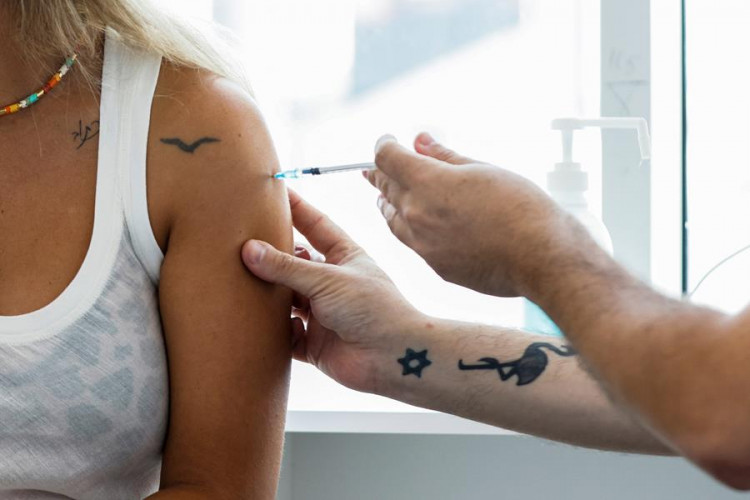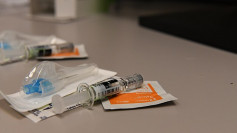A new survey from the Pew Research Center reveals that most Americans are unlikely to receive the updated COVID-19 vaccine, reflecting growing vaccine hesitancy and significant partisan divides. The poll, conducted from October 21 to 27 among 9,593 U.S. adults, found that 60% of respondents said they are "probably not" planning to get the latest shot. In contrast, only 24% indicated they "probably" would, while 15% reported having already received the updated vaccine. The survey's margin of error was 1.3 percentage points.
Despite ongoing public health campaigns, the findings underscore the challenges of bolstering vaccine uptake more than four years after the onset of the COVID-19 pandemic, a crisis that disrupted industries, forced global lockdowns, and spurred an unprecedented vaccine rollout.
Among those expressing hesitancy, 60% cited concerns over side effects as a major factor in their decision. Another 61% said they did not believe they needed the vaccine, while 5% pointed to cost as a deterrent. These issues highlight the complexities facing health officials attempting to combat vaccine skepticism and misinformation.
The Centers for Disease Control and Prevention (CDC) recently recommended that individuals aged 65 and older, as well as those who are immunocompromised, consider receiving a second dose of the updated vaccine. However, the Pew data suggests that such recommendations may face resistance, particularly amid ongoing political polarization.
A sharp partisan divide was evident in the survey results. Among Democrats, 60% said they "probably will" or had already received the updated vaccine, compared with only 18% of Republicans. This gap was even more pronounced among seniors: 84% of Democratic seniors reported plans to get vaccinated, compared to just 30% of their Republican counterparts.
"This stark partisan divide is troubling, particularly given the higher risks faced by seniors from severe complications of COVID-19," Pew researchers noted. Notably, the gap has widened significantly since 2021, when the disparity in vaccine uptake between Republican and Democratic seniors was just 15 percentage points.
Racial and ethnic differences also emerged in the survey. Black and Asian adults were more likely to report intentions to receive the updated vaccine compared to white and Hispanic respondents, highlighting variations in trust, accessibility, and vaccine messaging within different communities.
The survey findings come as President-elect Donald Trump's transition team announced Robert F. Kennedy Jr. as the nominee to lead the Department of Health and Human Services (HHS). Kennedy, a controversial figure with a history of anti-vaccine activism, has been a vocal critic of COVID-19 vaccines. In 2021, Instagram banned Kennedy for spreading vaccine misinformation.
Kennedy's nomination has sparked concerns among public health experts about its potential impact on future vaccine policies. His long-standing skepticism toward vaccines has raised fears that the incoming administration could shift federal messaging on vaccine safety and efficacy, potentially fueling greater public hesitancy.
Trump has previously expressed doubts about vaccine mandates and has criticized public health restrictions during his presidency. With Kennedy poised to lead HHS, the administration's stance on vaccination could undergo a significant shift, leaving health officials worried about the broader implications for public trust.
The CDC continues to emphasize the importance of vaccination as a critical tool to prevent severe illness and death, particularly ahead of the winter respiratory virus season. Officials recommend that everyone aged six months and older receive the updated COVID-19 vaccine. However, the Pew survey underscores the challenges in convincing a skeptical public, particularly in a polarized political climate.






